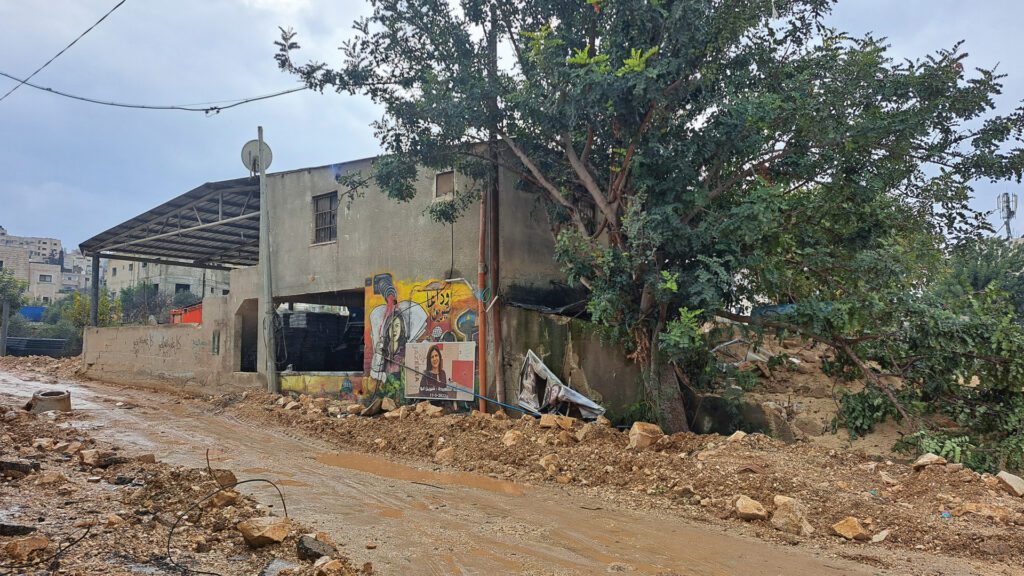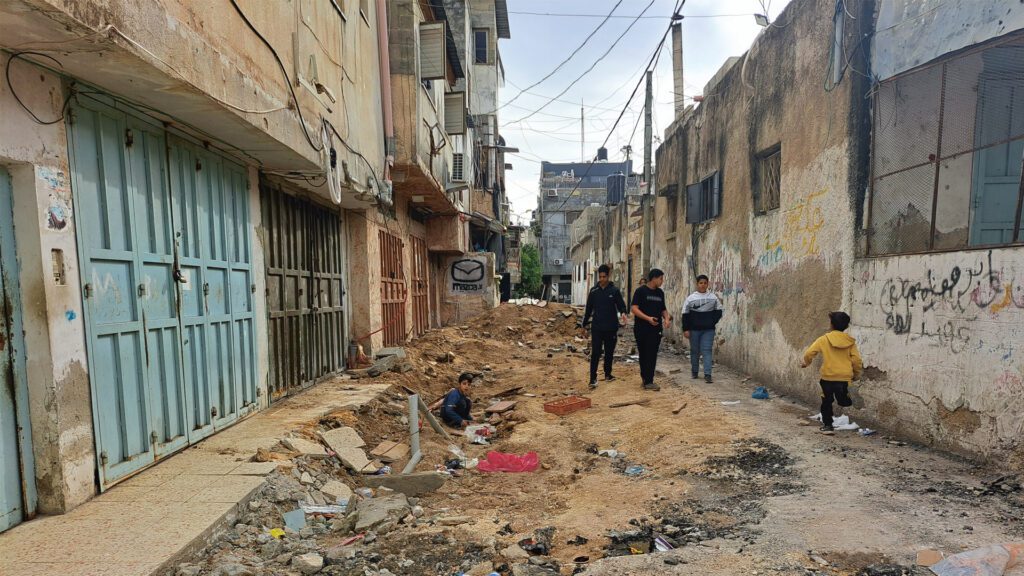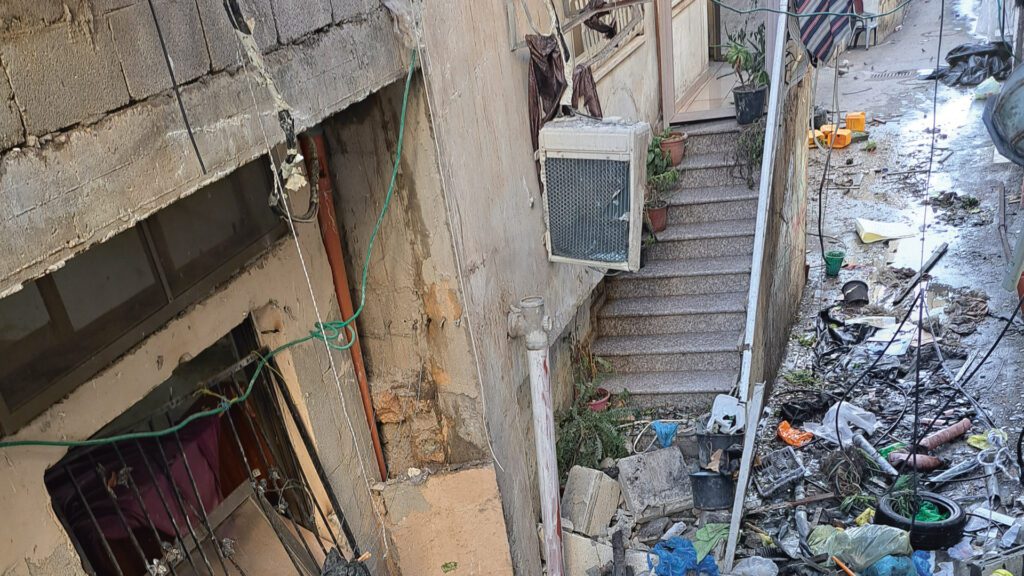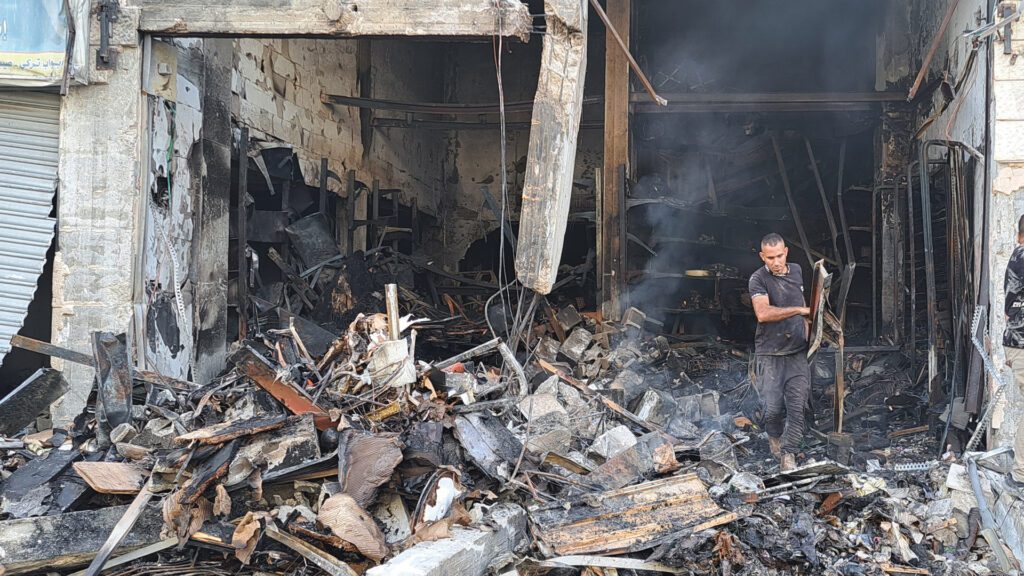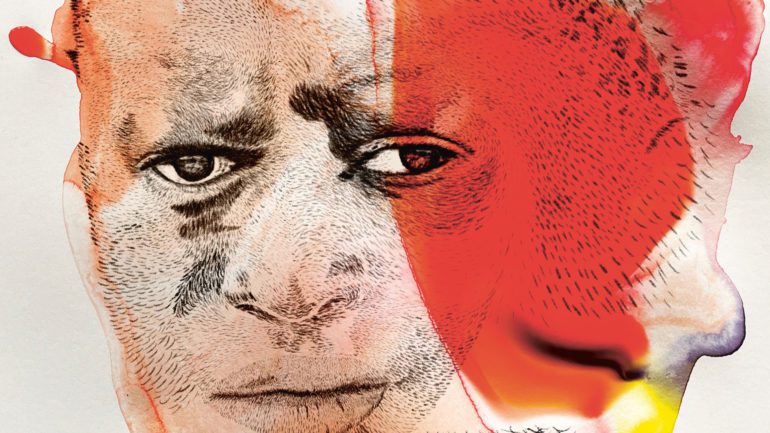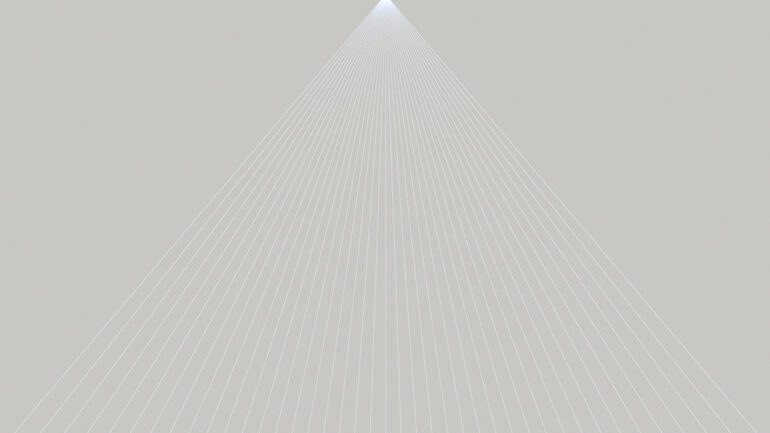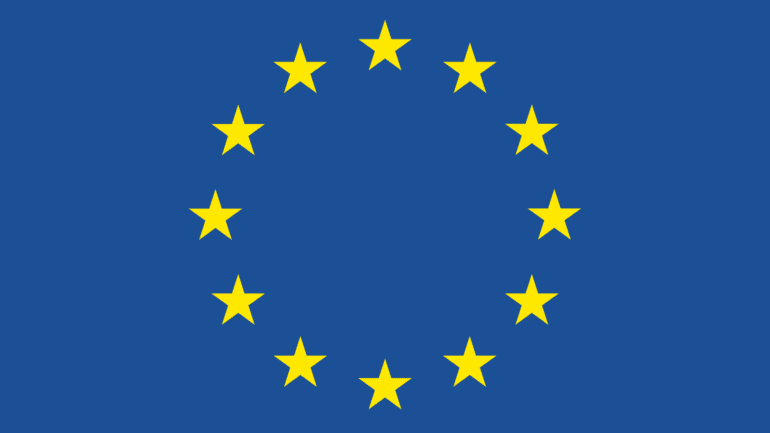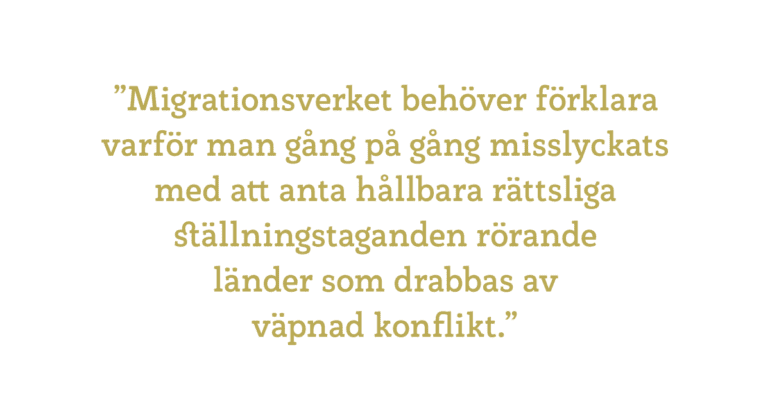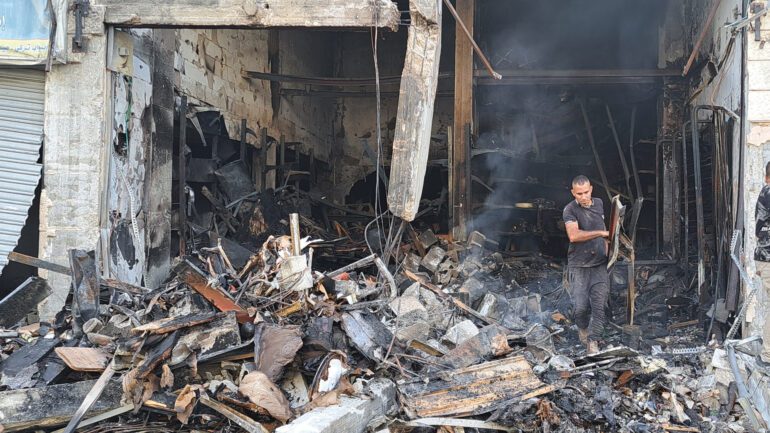Text and photo AbdulKarim Sadi.
Translated from Arabic by Mohammed Kiswani and subsequently to English by George Farrants.
AbdulKarim Sadi works for the Israeli human rights organisation B’Tselem documenting abuse and violations carried out by Israel on Palestinian civilians. In this article, he looks back on his work.
Last week, I worked out that I have worked for B’Tselem in the occupied Palestinian territories for more than 20 years. I have investigated and documented offences against Palestinian civilians carried out by Israel. It has always felt natural for me to work with an organisation devoted to human rights, and it is fully in line with my approach to life. I had previously worked for the International Red Cross in Ramallah, and before that for more than 12 years with a Palestinian organisation that specialised in documenting Israeli offences.
The greatest challenge was that I was working for the first time in my life with an Israeli organisation. It was difficult for me as a Palestinian to work with Israeli colleagues; to engage with them and forge new friendships. However, my anxiety and fears were soon a thing of the past, much sooner than I had imagined.
Twenty years ago, when I started to work for B’Tselem, was an extraordinary time. The second intifada, popular uprising, was then at its height. The uprising led to the construction of the separating wall, the isolation of Palestinian land behind the wall, murder and executions, limitations in freedom of movement, and the demolition of houses and homes.
I can now say that the offences that occurred then cannot be compared with the extreme offences carried out by the Israeli occupying forces that we are now experiencing. These ensure that daily life for Palestinian civilians has become increasingly painful and arduous. It is also important to point out that as soon as the Israeli soldiers who had stopped us found out that we were working for a human rights organisation, they took our commission into consideration and did not place any further obstacles in our way.
An Israeli soldier would be fully capable of opening fire on me and, in the absence of any witnesses, later claiming that “the victim was in possession of a knife”, even though the knife in question was a small knife only suitable for peeling fruit.
I can still remember the October night in 2015 when I was travelling from Ramallah back to Tulkarem, and I was stopped by Israeli soldiers who held me for two hours. My studies in psychology and philosophy enabled me to overcome the ordeal I was subjected to that night. I can still remember how the three soldiers pointed their rifles at my head before I reached where they stood. My fate and my experiences were worth nothing. An Israeli soldier would be fully capable of opening fire on me and, in the absence of any witnesses, later claiming that “the victim was in possession of a knife”, even though the knife in question was a small knife only suitable for peeling fruit. Being stopped by the soldiers was one of the worst moments in my life, since no conversation of any type took place between us. Each of us had a clear preconceived idea of who the other was. Through long experience in the field, I have developed a creative ability to find ways of communicating with various parties.
Three young soldiers, who must have been around 20 years old, stood in front of me, having no other knowledge or experience than what they had been led to believe through the propaganda that had brainwashed them, leading them to believe that we others are terrorists who delight in killing and injuring. I saw the expressions on their faces and their anxiety when the officer in charge started to question me. I told him I was on my way home from watching Hamlet by William Shakespeare. I then saw how their body language and facial expressions changed. They realised that I was an educated man. I also told them that my children, who were about the same age as they were, were studying to become engineers. When the tension had melted and fear evaporated, my feelings turned rather to sorrow that these young soldiers were so encapsulated in a restricted world view. At the same time, I felt pride in myself and my children, whom I had helped to obtain knowledge of other cultures around us. After two long hours filled with fear and doubt, I was surprised when the three soldiers shook my hand and wished me a safe onward journey. This is one small experience that I have gained through my work documenting and investigating Israeli violations.
As time went on, my work gave me deeper insight into the living conditions that my Palestinian people experienced under the occupation. The conditions and limitations placed on freedom of movement, the intentional killing of young men and children on the pretext that they were resisting the occupation, and the demolition of homes under false pretences, such as that the homes were positioned too close to security installations or other military objects in the occupied Palestinian region. In 2023, 25–30 % of landowners were denied access to their land during the olive season. Israeli soldiers and extremist settlers stole the farmers’ lands and built settlements and other buildings on them.
I’m not exaggerating when I say that the amount of work and documentation of events and violations during the past three months corresponds to the amount that I have documented during the past 3–4 years.
I monitored dozens of cases in which Palestinian farmers were expelled from their lands and prevented from harvesting olives. In addition, the Israeli settlers often stole the olives from the trees, or after they had been harvested by the farmers. Palestinian families wait for days to harvest their olives, which they use as food or sell to finance their children’s education at school or university. Human rights have been seriously undermined after the war against the Gaza Strip started in October 2023. The war also affects life on the West Bank, particularly in the area where I work around Jenin and Tulkarm. I’m not exaggerating when I say that the amount of work and documentation of events and violations during the past three months corresponds to the amount that I have documented during the past 3–4 years.
Since 7 October 2023, I have documented 175 cases of civilian Palestinians killed by the Israeli army or Israeli settlers. I have also documented the demolition of homes and the establishment of military checkpoints along roads on the West Bank. The situation here has become increasingly difficult and harrowing, but conditions on the West Bank cannot be compared with the terrible killing and ongoing genocide of civilians in the Gaza Strip.
What has happened in the Gaza Strip since October with the killing of women, children and the elderly and the demolition of buildings and complete housing estates has been so abhorrent that complete families have been wiped out and removed from the population register. I cannot describe how painful this has been. Three of my colleagues work in Gaza. The situation, fear and pain they experience and their loss of loved ones are foremost in my mind, and I must every day try to confirm that my colleagues are still alive. I would here like to describe what happened to one of my colleagues Elfat al-Kurd and her sister Ghada al-Kurd, and how the terrible conditions under the war have affected them.
When I heard the news of the events in the Gaza Strip and the neighbouring settlements on Saturday 7 October, I was profoundly worried about the fate of my colleagues there. Previous experience of war has taught me only too well how civilians are affected. I phoned Elfat and asked her what she was planning to do. She replied that she had packed a few necessities and supplies in preparation for having to leave her home. Elfat was living on Bagdad Street in the Al-Shuja’iya area, one of the areas where fighting was ongoing, lying as it does very close to the border with Israel. She was planning to move with her family to her sister’s house, near to the harbour and west of Gaza City. They were able to live there for only three days, since the area became a target for Israeli warplanes. They were then forced to move for a third time to the street outside the Al-Shifa hospital, considered by the people of the Gaza Strip to be the safest place. I was in daily contact with her to support and help her. Elfat lived in the street outside the Al-Shifa hospital for three days. The head of the Israeli army issued an order that the hospital area was to be evacuated, and this forced the family further south towards Wadi Gaza. The number of martyrs and injured who needed medical attention increased, while the courtyards and facilities in the hospital were overfilled by people seeking protection.
Elfat fled to a friend’s house in the Al-Mughraqa area close to Wadi Gaza, staying there for one night only. This was one of the worst nights of her life, when war planes bombed the homes of her relatives, killing around 25 men, women and children. The jets fired shells and missiles, forming a belt of fire in the area she had just left. Elfat and her family were displaced a fifth time to an area monitored by the UN Refugee Agency. This was an extensive open sandy area where those who had fled the terror of war can seek shelter and set up simple tents to protect themselves from the cold and rain.
While I was writing this article, my colleague Elfat lost her father, who was at the time living in the northern part of the Gaza Strip. He refused to flee, stating that he was old and sick. He died as a result of extreme cold, lack of food, and lack of medical care.


